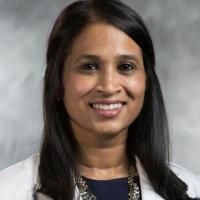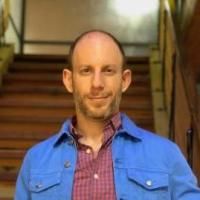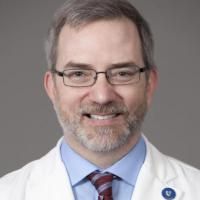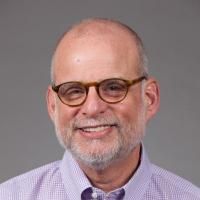Where Have All the Heroes Gone?
Date
2021-04
Journal Title
Journal ISSN
Volume Title
Repository Usage Stats
views
downloads
Citation Stats
Abstract
Type
Department
Description
Provenance
Citation
Permalink
Published Version (Please cite this version)
Publication Info
Navuluri, Neelima, Harris S Solomon, Charles W Hargett and Peter S Kussin (2021). Where Have All the Heroes Gone?. Medical anthropology, 40(3). pp. 209–213. 10.1080/01459740.2021.1897809 Retrieved from https://hdl.handle.net/10161/29785.
This is constructed from limited available data and may be imprecise. To cite this article, please review & use the official citation provided by the journal.
Collections
Scholars@Duke

Neelima Navuluri

Harris Scott Solomon
As a medical anthropologist, I am interested in the dynamic relations between medicine and everyday social and political life. My work is primarily based in urban India, and I also conduct research in the US.
My most recent work is a book project, entitled Lifelines: The Traffic of Trauma (Duke University Press, 2022). Lifelines is an ethnographic study of road and railway injuries and of trauma surgery. Its aim is to understand injury and movement as problems that must be thought together, and argues that medicine itself must be understood in terms of movements. It is based on five years of ethnographic research on traffic accidents in Mumbai, primarily in the trauma ward of one of the city's largest public hospitals. Lifelines tracks traumatic injury as the accident moves through different domains: the conveyance of accidents to the hospital, triage, surgery, the involvement of families and police, intensive care, autopsy, and recovery with disability after discharge. The research for Lifelines was supported by a CAREER Award (Faculty Early Career Development Program) from the National Science Foundation Cultural Anthropology Program.
Based on my research in the Mumbai trauma intensive care unit (ICU), and in the context of COVID-19, I am writing a collaborative ethnography with colleagues in Critical Care at Duke Hospital and the School of Medicine. This project is entitled Distressed Medicine. Funded by a National Science Foundation RAPID Award, our project studied conditions of adversity posed by COVID-19 to intensive care, and the creative responses ICU workers employ to adapt to them. Amidst the massive transformation in the US healthcare workforce due to the pandemic, the book examines COVID-19 as a problem of health work.
Another book project, entitled Edifice Complex, examines questions of trust, safety, and security in hospitals in the context of medical errors, cyberattacks, climate change, and violence.
My earlier work examined the dynamic conditions between bodies and environments in India. My first book is entitled Metabolic Living: Food, Fat, and the Absorption of Illness in India (Duke University Press, 2016, read introduction here). As India becomes increasingly portrayed as the site of a shift from infectious to chronic disease burdens said to accompany economic development, my research explores the phenomenon of metabolism as an ethnographic, biomedical, and political rubric. With India's rising rates of obesity and diabetes as its backdrop, Metabolic Living examines relationships forged between food, fat, the body, and the city of Mumbai. The book draws on ethnographic fieldwork carried out in Mumbai's home kitchens, metabolic disorder clinics, and food companies, to better understand what have been termed India's "diseases of prosperity."
I have also studied the development of corporatized medical care in Indian cities and its manifestation as medical tourism, and the politics of language and sexuality in India's HIV treatment clinical trials.
I situate both my research and teaching at the interdisciplinary intersections of medical anthropology, South Asian studies, science and technology studies, the medical humanities/social medicine, and global health. Prior to anthropology, I studied linguistics and public health, and worked on global reproductive health and HIV policy.

Charles William Hargett

Peter Samuel Kussin
The majority of my effort is devoted to clinical care of patients with advanced lung disease and teaching.
I spend four months a year in Eldoret Kenya working at Moi Teaching and Referral Hospital as part of The Duke Hubert Yeargan Institute for Global Health and AMPATH- a consortium of North American Medical Schools collaborating with Moi University School of Medicine and Moi Teaching and Referral Hospital. I work primarily in the intensive care unit and medicine wards. I am involved in broad range of research efforts in critical care and pulmonary medicine in resource limited countries.
Unless otherwise indicated, scholarly articles published by Duke faculty members are made available here with a CC-BY-NC (Creative Commons Attribution Non-Commercial) license, as enabled by the Duke Open Access Policy. If you wish to use the materials in ways not already permitted under CC-BY-NC, please consult the copyright owner. Other materials are made available here through the author’s grant of a non-exclusive license to make their work openly accessible.
